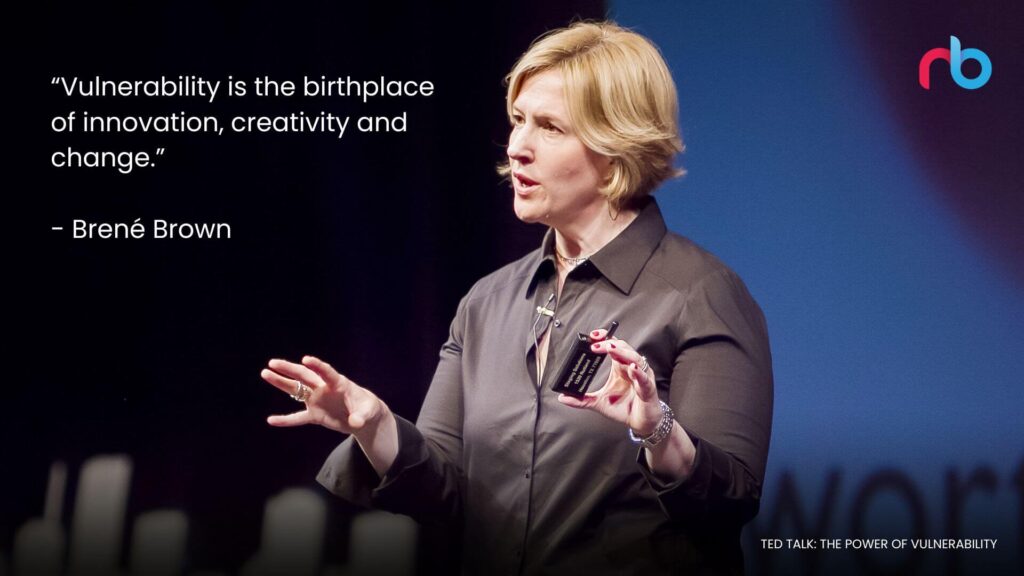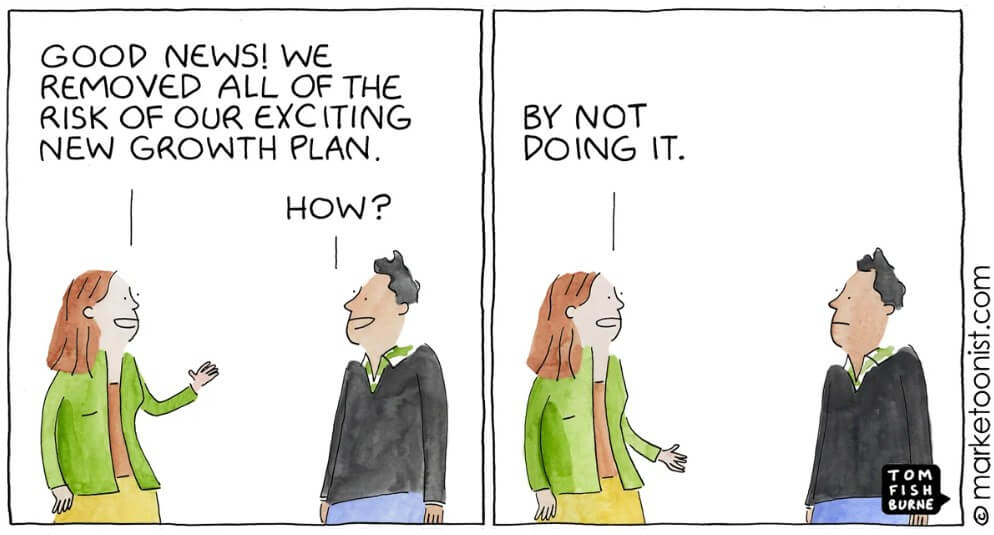
As a communications consultant working with organizations like the UN, World Bank, and EU, I’ve learned that our greatest professional growth often comes from our biggest mistakes.
While these highly political organizations tend to be risk-averse, I’ve discovered that embracing failure – thoughtfully and strategically – can lead to unexpected opportunities and innovations.
Here are five essential lessons I’ve learned about the power of failure in professional communications:
1. Growth happens outside your comfort zone
in today’s rapidly evolving digital landscape, learning from mistakes has become essential for success. Essentially, if you’re not failing, you’re not growing.
While corporate environments might limit opportunities for risk-taking, the key is identifying those moments where you can push boundaries safely (even if you work for a government institution).
When you start feeling vulnerable or uncertain, that’s often a sign you’re in a growth zone. As Brené Brown’s research shows, “vulnerability is the birthplace of innovation, creativity and change.”
One example is the challenge of public speaking: it is difficult for many of us to speak in videos or podcasts. However, these new mediums can help raise your profile, increase your visibility online, and help you summarize your ideas on social media.
2. Practice makes perfect
My journey with public speaking illustrates this perfectly. During university, I was part of the debating club, where I regularly gave what I considered terrible performances – five minutes of mumbling to a confused audience. But each “failure” made me slightly better.
Today, I lead global events and presentations, not because I’m naturally gifted, but because I was willing to fail repeatedly while improving incrementally. The same goes for speaking on video and podcasts… At first, I was AWFUL, but little by little, I am learning and improving every day.
Bestselling author James Clear spoke about the power of small changes: “Improving by 1% isn’t particularly notable, sometimes it isn’t even noticeable… But if you can get 1% better each day for one year, you’ll end up 37 times better by the time you’re done.”
The benefits of constantly improving are impressive. Like financial investments, the compound interest of consistently experimenting can help you succeed in the long run.
3. Technical issues can lead to better processes
During the pandemic, I led a global event for the United Nations Environment Programme Finance Initiative (UNEP-FI) with over 3,000 attendees from 140 countries. Despite careful planning, I experienced every virtual event organizer’s nightmare – my microphone accidentally broadcast a private conversation during a CEO panel. This embarrassing moment taught me the crucial lesson of triple-checking every technical element before major events.
Technical failures, while uncomfortable, create robust protocols that prevent future technical mishaps.
Nowadays, I am comfortable managing major events or webinars, but this is only because I have been through challenges and have learned how to deal with them.
4. Failures can help improve your communications
Sometimes, a mistake can help you see things differently.
The European Commission’s “Science: It’s a Girl Thing” campaign is a perfect example of a failure that became a learning opportunity. Their initial video was widely criticized for being sexist and disconnected from real women in science:
However, the Commission’s response transformed failure into success: they acknowledged the mistake, removed the video, and invited female scientists to crowdsource authentic content about their experiences. This led to genuine engagement and dialogue – exactly what the campaign originally aimed to achieve. The New York Times even suggested that the campaign ultimately succeeded because of its initial failure.
“If there is one positive thing to have emerged, it is the wider debate on women in science that it has provoked,” said one European Commission representative when reflecting on the campaign.
Thanks to this campaign, these days, the Commission regularly crowdsources its campaigns, asking Europeans to send videos or suggestions to co-create new EU initiatives.
5. Controlled experimentation is the key to innovation
Instead of avoiding risks entirely or rushing into major changes, consider the “experimental approach” demonstrated by organizations like Candid, a nonprofit that provides comprehensive data and insights about the social sector.
Candid wanted to try out short-form video, but they didn’t have the resources to go all in. So they experimented with content through a carefully structured three-month pilot program, producing 22 videos, keeping a close eye on analytics, and treating it as a learning opportunity.
This approach allows organizations to:
- Try new communication strategies without taking up too many resources
- Gather concrete data about what works
- Demonstrate value to stakeholders and managers
- Learn and adjust before scaling up
Why is failure important?
The communications landscape is evolving rapidly, with over 70% of news consumption now happening on social media and online influencers sometimes boasting larger audiences than traditional media outlets.
Gen Z politicians have increased their presence in the European Parliament following the latest European elections. In this environment, staying in our comfort zone isn’t just uncomfortable – it’s unsustainable.
The stigma around failure, particularly in European professional culture, must evolve. We don’t need to adopt Silicon Valley’s “move fast and break things” mentality, but we do need to create space for thoughtful experimentation and learning from failure.
Sometimes, the willingness to try something new – like a new communication platform or an innovative campaign approach – can open doors you never expected!
The key is creating a culture where calculated risks and learning from failure are accepted and valued as essential steps toward innovation and growth.
—
See my keynote presentation below for the event “Epic Fails: Turning Communication Missteps into Mastery” aimed at enabling EU communication teams to share their stories and lessons learned from failed campaigns.
Cover photo from Pexels.



